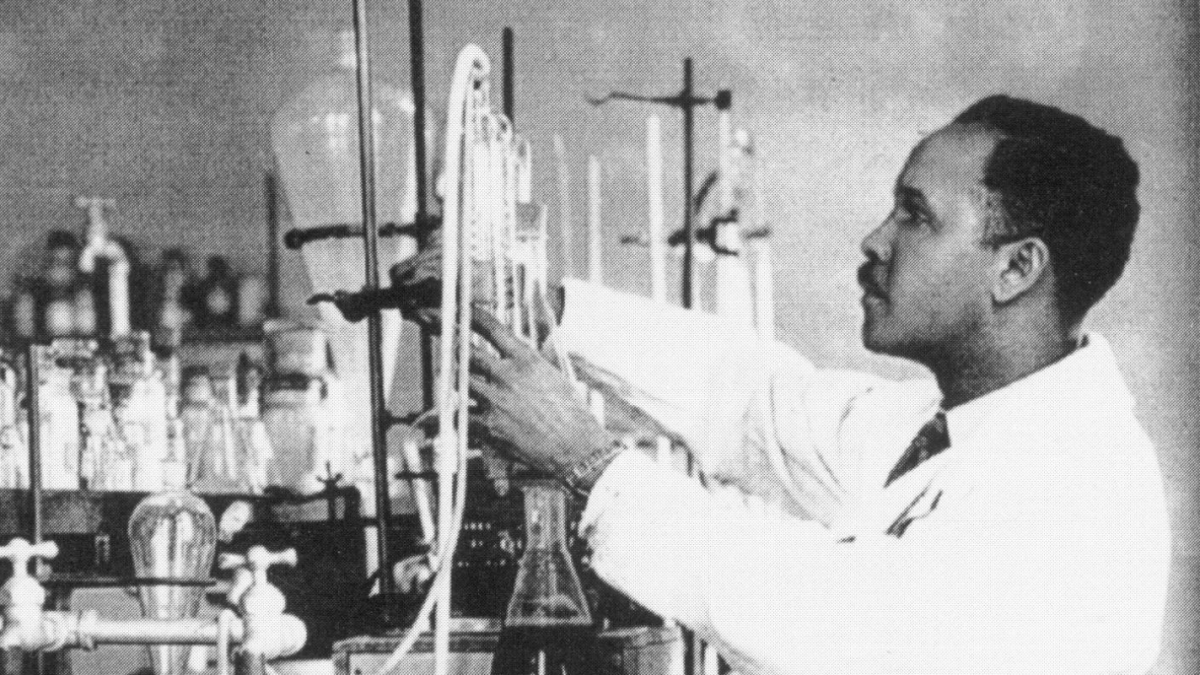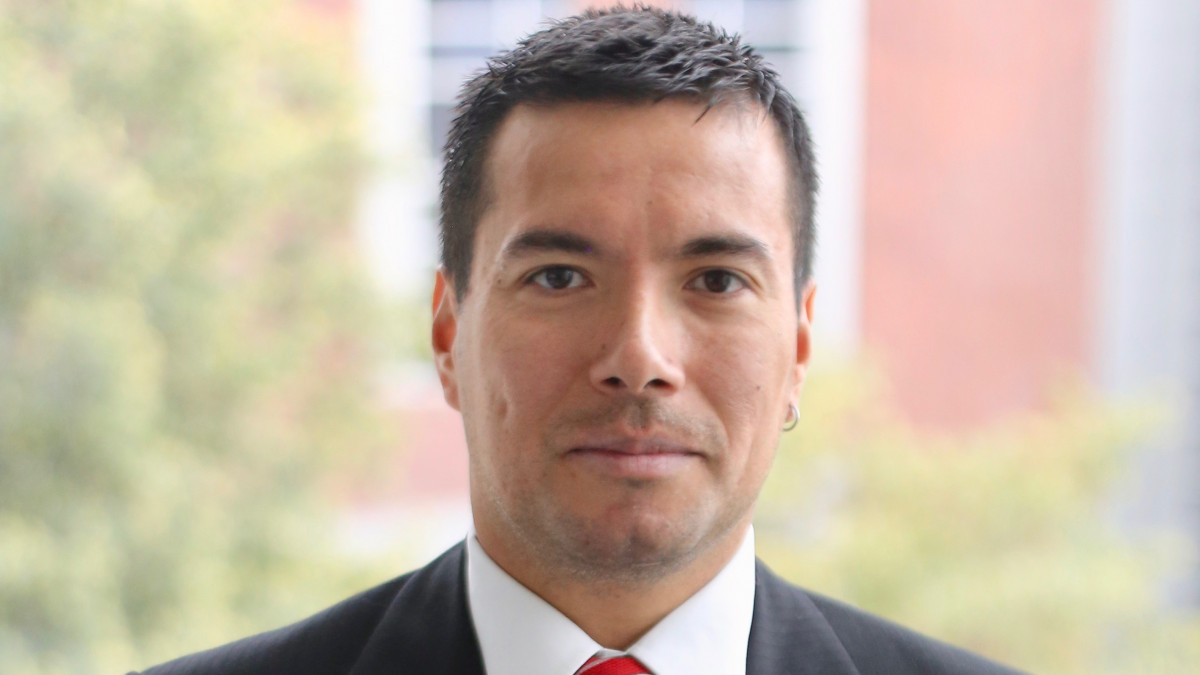The United States has the highest rate of imprisonment in the world, 716 per 100,000 residents, and Americans spend $270 billion a year to keep 2.2 million of their fellow citizens locked up. Congress undertook criminal justice reform last year, passing the First Step Act with bipartisan support. Bordt, a DePauw sociology professor, has researched the sociology of punishment. We asked her:
Why does the U.S. imprison so many of its citizens? Should state and federal government leaders do more to address mass incarceration?
Many assume that our country’s high imprisonment rate is a result of a high crime rate. But incarceration rates and crime rates move independently of each other. In the past 40 years the incarceration rate has more than quadrupled as the crime rate has steadily decreased. Any discussion of mass incarceration must be decoupled from crime; something else is driving imprisonment rates.
To understand what that is, we need an updated conceptualization of prisons. When I started studying prisons 35 years ago, it was standard to think of prisons as autonomous units loosely aggregated by state or a federal system. Today prisons are situated in a vast network linking corporations, government, correctional communities and media – the prison industrial complex. Identifying the economic, political and social interests embedded in this complex reveals why we have mass incarceration, why it is so resilient and why it is unlikely to reverse direction.
Mass incarceration is profitable: CoreCivic and the GEO Group Inc. run private prisons and have government contracts with U.S. Immigration and Customs Enforcement, U.S. Marshall Service and Federal Bureau of Prisons, among others. State-run prisons outsource most services, such as health care, food and telephone services, to private companies. Corporations “employ” prisoners to make their products or carry out services (e.g., Target, Honeywell, Microsoft, Revlon), paying them literally pennies for their labor. If you are in the prison business, more incarcerated bodies represent more profit, a hallmark of capitalism.
Mass incarceration reinforces our government’s neoliberal public policy:Central to neoliberal ideology and policy is the privatization of public services. The American Legislative Exchange Council, at the behest of its corporate funders, writes and lobbies for “model” legislation such as the “Truth in Sentencing Act” and the “Three-Strikes-You’re-Out Act,” both of which fuel mass imprisonment.
Mass incarceration is consistent with our racial order that criminalizes skin color, immigration and poverty: Scholars argue that mass imprisonment is the latest in a long line of systems that legitimize white supremacy: first slavery, then convict leasing, next Jim Crow and now mass incarceration. Others include other dispossessed groups: Latinx, immigrants and poor whites. Racism, in various iterations, fuels who makes up the mass in mass incarceration.
So should federal and state government leaders do more to address mass incarceration? Should we applaud the First Step Act? Yes and no. It is hard to argue against justice reinvestment, aiding prisoners with reentry and reducing recidivism. But none of these actions will put a dent in the structural forces that ensure the tenacity of mass imprisonment. The prison industrial complex does not just encapsulate prisoners. It envelops those of us in the free world as well. We are all implicated in mass incarceration – by the products we consume, the corporations that employ us, the politics we preach. So it will take us all in nothing short of a mass movement to begin to chip away at it.
The Bo(u)lder Question
is a regular feature of DePauw Magazine, which is published three times a year.
DePauw Magazine
Spring 2020
 Leaders the World Needs: Alum who attended college against odds guides youths to do same
Leaders the World Needs: Alum who attended college against odds guides youths to do same OLD GOLD: Percy Julian, unappreciated in his time, inspires today
OLD GOLD: Percy Julian, unappreciated in his time, inspires today FIRST PERSON with Jonna McGinley Reilly '00
FIRST PERSON with Jonna McGinley Reilly '00  The Bo(u)lder Question By Rebecca Bordt
The Bo(u)lder Question By Rebecca Bordt The poet
The poet The iceman
The iceman The most American athlete ever
The most American athlete ever
 The beekeeper
The beekeeper The juggler
The juggler The lucky guy
The lucky guy Aligned stars: Snowshoeing scientist studies the skies
Aligned stars: Snowshoeing scientist studies the skies Indelible images: Devastating photo, desperate need move alums to act
Indelible images: Devastating photo, desperate need move alums to act The nonconformists
The nonconformists A twist of fate: Unexpected discovery rekindles family legacy
A twist of fate: Unexpected discovery rekindles family legacy
DePauw Stories
A GATHERING PLACE FOR STORYTELLING ABOUT DEPAUW UNIVERSITY
Browse other stories
-
Athletics
-
Women's Basketball - DePauw Wraps up Hasbrook Tournament with 60-30 Win over Ohio Northern
-
Men's Basketball - Tigers Extend Win Streak to Six with Overtime Win at Augustana
-
Women's Basketball - Strong Fourth Quarter Lifts Trine to Comeback Win over DePauw
More Athletics
-
-
News
-
Student and Professor Share Unexpected Writing Journey
-
Four in a Row! DePauw Wins 131st Monon Bell Classic
-
Jim Rechtin '93 Featured in Fortune Magazine
More News
-
-
People & Profiles
-
Entrepreneurs Eric Fruth ’02 and Matt DeLeon ’02 Are Running More Than a Business
-
Rick Provine Leaves Legacy of Leadership and Creativity
-
History Graduate Cecilia Slane Featured in AHA's Perspectives on History
More People & Profiles
-
-
Have a story idea?
Whether we are writing about the intellectual challenge of our classrooms, a campus life that builds leadership, incredible faculty achievements or the seemingly endless stories of alumni success, we think DePauw has some fun stories to tell.
-
Communications & Marketing
101 E. Seminary St.
Greencastle, IN, 46135-0037
communicate@depauw.eduNews and Media
-
News media: For help with a story, contact:
Bob Weaver, Senior Director of Communications.
bobweaver@depauw.edu.